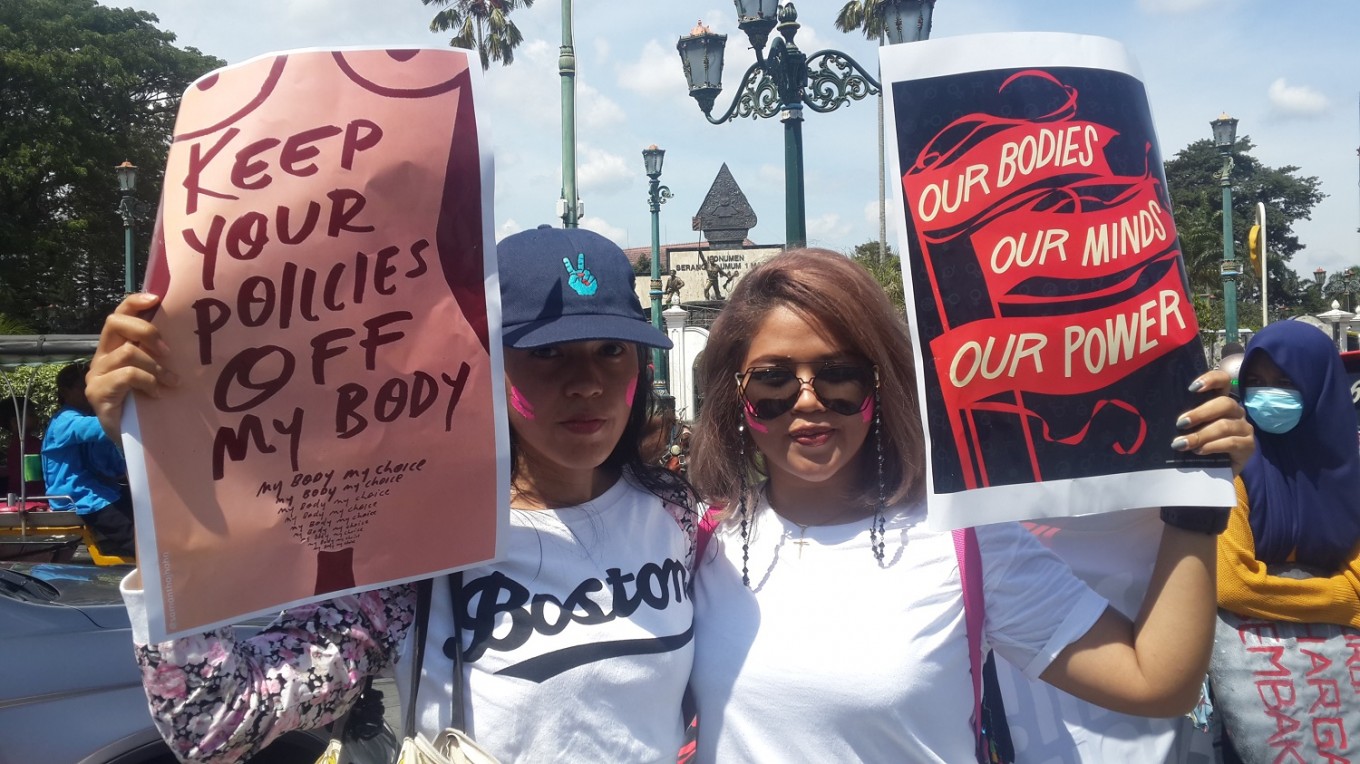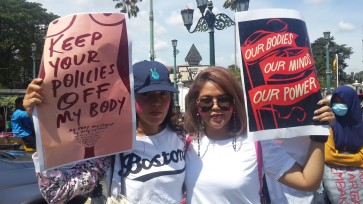Popular Reads
Top Results
Can't find what you're looking for?
View all search resultsPopular Reads
Top Results
Can't find what you're looking for?
View all search resultsUrgent actions to end violence against girls and women
Violence against women is among the most widespread human rights violations globally. One in three women experiences violence at least once in her lifetime.
Change text size
Gift Premium Articles
to Anyone
T
he women’s rights movement has struggled for decades to persuade the international community that violence against women is a human rights issue, not just a private matter between individuals.
Dec. 10 marks the end of 16 Days of Activism to Eliminate Violence Against Women, a global campaign that unites people across the world to end this epidemic. It is also Human Rights Day.
Violence against women is among the most widespread human rights violations globally. It is unacceptable that in the 21st century, one in three women experiences violence at least once in her lifetime. While progress has been made, it is important to acknowledge that there are still far too many women and girls who experience violence. It is the most extreme manifestation of gender inequality. It is occurring every day, and it knows no geographic or socio-economic boundaries.
In Indonesia, sexual and physical violence is a daily reality for many women. A new nationwide survey commissioned by the Women’s Empowerment and Child Protection Ministry, carried out by the Central Statistics Agency with assistance from the UN, shows that one in three Indonesian women have experienced physical and or sexual violence in their lifetime.
Indonesia ratified the Convention on the Elimination of All Forms of Discrimination Against Women (CEDAW) 33 years ago, and the government has made intensive efforts to advance women’s rights, including the passing of Domestic Violence Law No. 23/2004. However, challenges remain.
Gender-based violence against women is one of the fundamental social, political and economic means by which the subordinate position of women with respect to men and their stereotyped roles are perpetuated. The CEDAW Committee has made it clear that this violence is a critical obstacle to achieving substantive equality between women and men as well as to women’s enjoyment of human rights and fundamental freedoms. This is what all UN member states committed to achieve through the Sustainable Development Goals, of which Goal 5 focuses on gender equality and ending violence against women by 2030. Apart from the obvious physical and mental toll violence has on women, it also destabilizes families and entire communities. The lifetime costs related to violence against women include land exclusion, economic deprivation and trauma.
Particularly in poor communities, a small shift in productivity in subsistence societies can have major impacts on child nutrition, health and access to education. As a result, OECD estimates that discriminatory social practices including violence against women cost the global economy approximately US$12 trillion a year. So, what can be done? First, identifying the root causes, for example, social norms that reinforce male authority and patriarchy; exposure to violence in childhood that manifests into violence later in life; drug and alcohol abuse, and poverty.

















